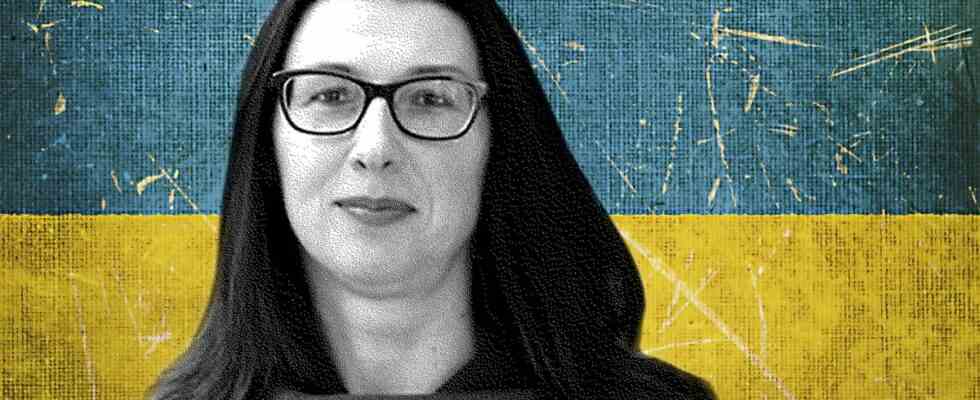What do the Ukrainians do when three hundred thousand Russian soldiers are deployed? And the Russian President threatens to use nuclear weapons in Ukraine? Ukrainian social networks are reacting with memes and jokes, like this: The picture shows the supreme commander of the Ukrainian armed forces Valeriy Zalushnyy on the phone. He says into the phone: “Mr. Minister of Agriculture, please prepare your proposals as to where we will bury all the Russians. Exactly where the Ukrainian soil still needs to be fertilized.” Zalushny himself reacted in his laconic way: “We will destroy everyone who sets foot on our soil with weapons – whether voluntarily or mobilized.”
However you take the news of the Russian partial mobilization, it is clear that the threat from Russia has reached a new level. It is equally clear to the Ukrainian armed forces and the civil society behind them that we are not giving up on this. The saying “freedom or death”, which probably dates back to the time of the Cossacks, literally becomes the leitmotif of the thoughts and actions of all thinking and acting Ukrainians.
I am not interested in politics: this position no longer exists in Russia
The reactions of Russian society, on the other hand, are much more differentiated. Although in the past few weeks I can hardly reconcile all the tasks of the new position at the university, the face-to-face classes and the ongoing humanitarian projects, I take an hour on Sunday to browse the Russian social networks .
Authentic reports are sometimes quite insightful. The “politically distant ordinary Russian citizens”, who were not interested in the special operation in Ukraine for seven months and could not formulate an opinion on it in surveys, are suddenly visited by politicians at home and reminded of their duty to “defend the homeland”. . The answer “I’m not interested in politics” is not intended.
The fiery patriotic slogans, the belief that the “ukro-fascists” will finally be defeated, are boring. All sorts of tips for the less patriotically-minded citizens appear to be more interesting, such as where to go with and without a valid passport and how long one can stay in the respective country of residence. In the Facebook group “Buryatia is our home” there is a post with the headline on a photo of Vladimir Putin: “We declare as enemies all those who are involved in the genocide of small peoples in Russia.”
Georgia is not happy about fleeing Russians. They just came with tanks
An allusion to the disproportionately high proportion of fallen soldiers from Siberian regions, especially from Buryatia. In the group “Situation at the border crossing Verchnij Lars – Russia – Caucasus” I get stuck longer, the “worrying posts” of the Russians wanting to leave the country are answered by the Georgians, some of them wonderfully funny and sarcastic. An AZ writes: “The nephew, 35, is driving from Moscow to Tbilisi. What questions are being asked at the border now? – “He is not driving, he is fleeing,” is corrected in one answer. “They are asked whether you have a pronounced interested in toilet shells and washing machines. If you don’t, you’re allowed to enter the country,” jokes a man who apparently knows about the Russian soldiers’ frenzy of looting.
In addition to the funny comments, there are also very serious and warning ones. “In the summer of 2008, the Russians came to us in Georgia with tanks. Many of those who are fleeing here today probably stood by and applauded.” “Where is the guarantee that in a few years these ‘conscientious objectors’ won’t call their tsar to come and ‘defend’ them?” It might not be a bad idea not to take these statements across the board as irrelevant subjective opinions from social networks. Unwillingness to be sent to war does not automatically go hand in hand with the internalization of liberal democratic values. Or does one in the Federal Republic have the impression that all residents originally from the Soviet Union or Russia have actually internalized them?

